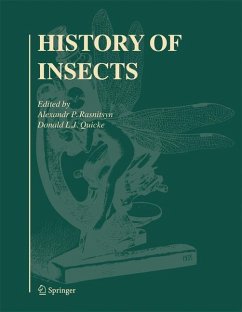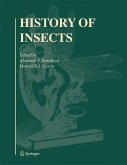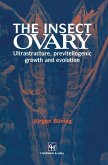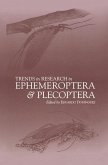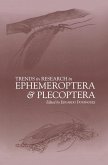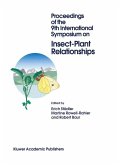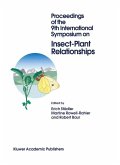This is the first time that a single book has attempted to cover the whole of the fossil history of insects, so comprehensively. The volume embraces the history of insect paleontology, the methods for studying fossils, the taphonomic processes leading to their formation, the diagnostic features of all insect orders, both extant and extinct, the major fossils of each order, and the implications that can be drawn from the palaeoentomological record about past ecology and climates. Many new insights are presented.
It is the product principally of the largest palaeoentomological group in the world, in Moscow, and makes full use of the remarkable collection that these workers have developed. It includes a very large number of phylogenetic framework, with information on fossil groups being used to help interpret relationships. An appendix provides information on virtually all sites where fossil insects have been found. This book is essential to all students of palaeoentomology and contains a wealth of information that will be of interest to students of insect evolutionary relationships and palaeontology in general.
The Paleontological Institute, Russian Academy of Sciences (Moscow), is the world's largest team of paleontologists, with 263 total staff and 117 paleontologists (as of January 2000) in 12 research departments and in the Yu. A. Orlov Paleontological Museum.
Hinweis: Dieser Artikel kann nur an eine deutsche Lieferadresse ausgeliefert werden.
It is the product principally of the largest palaeoentomological group in the world, in Moscow, and makes full use of the remarkable collection that these workers have developed. It includes a very large number of phylogenetic framework, with information on fossil groups being used to help interpret relationships. An appendix provides information on virtually all sites where fossil insects have been found. This book is essential to all students of palaeoentomology and contains a wealth of information that will be of interest to students of insect evolutionary relationships and palaeontology in general.
The Paleontological Institute, Russian Academy of Sciences (Moscow), is the world's largest team of paleontologists, with 263 total staff and 117 paleontologists (as of January 2000) in 12 research departments and in the Yu. A. Orlov Paleontological Museum.
Hinweis: Dieser Artikel kann nur an eine deutsche Lieferadresse ausgeliefert werden.

